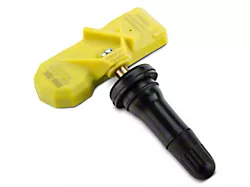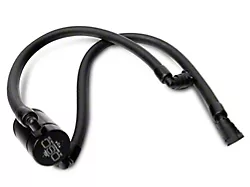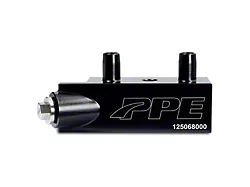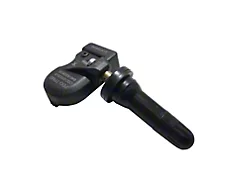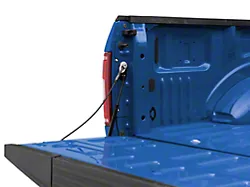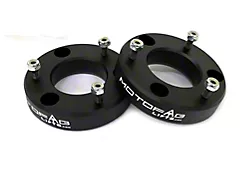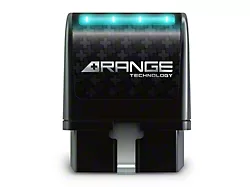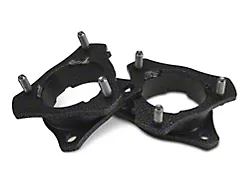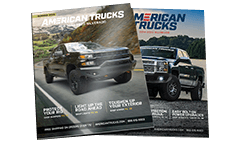
How to Install dB Performance by Corsa 3 in. Sport Cat-Back Exhaust w/ Polished Tips - Split Rear Exit (07-13 4.8L Silverado 1500) on your Chevy Silverado
Tools Required
- Safety Glasses
- 15mm Wrench or Deep Socket
- Torque Wrench
- Soap &Water Solution

Shop Parts in this Guide
- dB Performance by Corsa Sport Dual Exhaust System with Polished Tips; Rear Exit (07-13 4.8L Silverado 1500)
- dB Performance by Corsa Sport Dual Exhaust System with Polished Tips; Rear Exit (07-13 5.3L Silverado 1500)
- dB Performance by Corsa Sport Dual Exhaust System with Polished Tips; Rear Exit (07-09 6.0L Silverado 1500, Excluding Hybrid)
Please take time to read and understand these installation instructions.
We recommend that the installation of this system be performed by a qualified service center or professional muffler installer who has the necessary equipment, tools and experienced personnel. However, if you decide to perform this install, the use of a hoist and an additional person will be required.
CAUTION: Never work on a hot exhaust system. Allow time for the vehicle to cool. Always wear eye protection when working under a vehicle.

Stock Exhaust Removal Instructions
SKIP STEPS 1 & 2 IF INSTALLING ON 119" W.B. REG. CAB/STD. BOX TRUCK.
1) Scribe a line 12" forward from the front face of the stock muffler. (See Fig. A)
2) Place a chain style cutter around the exhaust pipe at the scribe line location and cut the exhaust pipe. (See Fig. B)
3) Remove the hangers from the grommets at the muffler exit, near the spare tire and finally ahead of the muffler, using grommet pullers or similar device. (See Fig's C, D & E) Note: Using a soapy solution on the grommet hole will make the job easier.
4) Use a 15mm socket and ratchet to remove the flange nuts at the flange connection of the head-pipe. This completes the removal of the stock system. (See Fig's F & G)
5) Remove the muffler and rear tailpipe section from the vehicle by lifting the tailpipe over the rear axle and pulling forwards toward the front of the vehicle. (See Fig's H & I)



Installation of dB Performance Exhaust System:
NOTE: The supplied double edge clamps in this system will crush and permanently deform the exhaust piping as they are tightened. DO NOT tighten these clamps any more than is necessary to lightly hold the exhaust components in place, until the very end of this installation process. It will be difficult or impossible to make any positional or rotational adjustments to the exhaust system after these clamps have been tightened down.
VERY IMPORTANT: Align all clamps so that the open edge of the clamp bracket is parallel and aligned with the notch in the pipe, and the outside edge of the clamp bracket is approximately 1/8" from the end of the pipe expansion. (See Fig. 1) Failure to properly position or orient the clamps could result in a weak clamping load, or even a potential leak at the clamp joints.
IMPORTANT: Make sure that the small drain holes in the muffler are facing down when the muffler is installed. (See Fig. 2)


1) Locate the dB Head Pipe assembly and slide the flange over the studs on the factory flange. Use the nuts supplied with the dB hardware kit and evenly tighten down to 30 Ft-lbs. Insert the hanger into the factory grommet. (See Fig's J & K) Note: Using a soapy solution on the grommet hole will make the job easier.
2) Make sure the weep hole is facing down then slide the muffler onto the Head Pipe. Slide a supplied 3" clamp over the inlet of the muffler. Pre-tighten the clamp so it is snug but can still rotate. (See Fig's L, M & N)

3) Locate the dB Dual "Y" Assembly, insert over the muffler exit and place the hangers into the factory grommets. Slide a supplied 3" clamp over the inlet. Pre-tighten the clamp. (See Fig's 0, P, Q & R) Note: Using a soapy solution on the grommet hole will make the job easier.
4) Locate the passenger side tailpipe assembly, place the pipe onto the upper end of the Dual "Y" Assembly and insert the hanger into the factory grommet. Slide a 2.5" clamp over the inlet. Pre-tighten the clamp at this time. (See Fig's S, T, U, & V) Note: Using a soapy solution on the grommet hole will make the job easier.
5) Locate the Driver over the axle Pipe and place the pipe onto the lower end of the Dual "Y" Assembly. Slide a 2.5" clamp over the inlet and loosely snug clamp. Leave the pipe loose at this time for adjustment when placing the driver side tailpipe onto the over the axle pipe. (See Fig's W, X & Y)

6) Locate Driver Side tail pipe hanger assembly ("U" shaped Wire Loop & Plate) and hardware (threaded Mounting Plate, bolt and washers) (See Fig. Z). On the driver side of the vehicle, position the threaded rectangular-shaped mounting plate on top of the frame rail over the hole located furthest forward from the rear of the frame rail. (See Fig. AA & BB)
7) Insert the supplied 5/16"-18 bolt through the tail pipe Wire Loop & Plate hanger and thread it into the threaded Mounting Plate on top of the frame. Note: Position the driver side hanger so that it faces toward the spare tire (See Fig. CC)
8) Locate the drivers side tailpipe and install tail pipe onto the over the axle pipe (See Fig's DD, EE & FF). Insert tail pipe hanger into provided rubber grommet. Slide a 2.5" clamp over the inlet and pre-tighten clamp at this time. Note: Using a soapy solution on the grommet hole will make the job easier.
9) Slide one of the tips over the outlet of the driver side tailpipe. Make sure etched logo is pointing up and loosely tighten the clamp at this time. (See Fig. GG, HH). Repeat on passenger side.
10) Check the alignment of tail pipes and tips. (See Fig. II) Make sure there is at least 1.5" clearance between the tips and bottom of the bumper. Align tail pipes if necessary by making adjustments at the slip joints.



NOTE: Failure to follow these instructions and maintain the recommended clearances to the above listed parts could impact the long term performance of said parts. Please contact the dB Performance Exhaust Customer Service Department (800-486-0999) if you have any questions related to the above information.

11) Starting from the front of the dB exhaust system, tighten all nuts on clamps to 35 ft-lbs using a torque wrench. Tip clamp: 16-20 ft-lbs.
12) It is strongly suggested that all clamps be checked and tightened if necessary after road testing the vehicle and after the system has cooled.
NOTE: During cold weather start-ups, you may experience an exhaust sound that is deeper and louder in tone than usual. This is temporary and will diminish to normal levels once your engine has reached its normal operating temperature.
NOTE: Immediately following the installation of your exhaust system, you may experience a trace of smoke after initial start-up. DO NOT be alarmed. The smoke is caused by the burning of a small amount of forming oil residue used in the manufacturing process.
